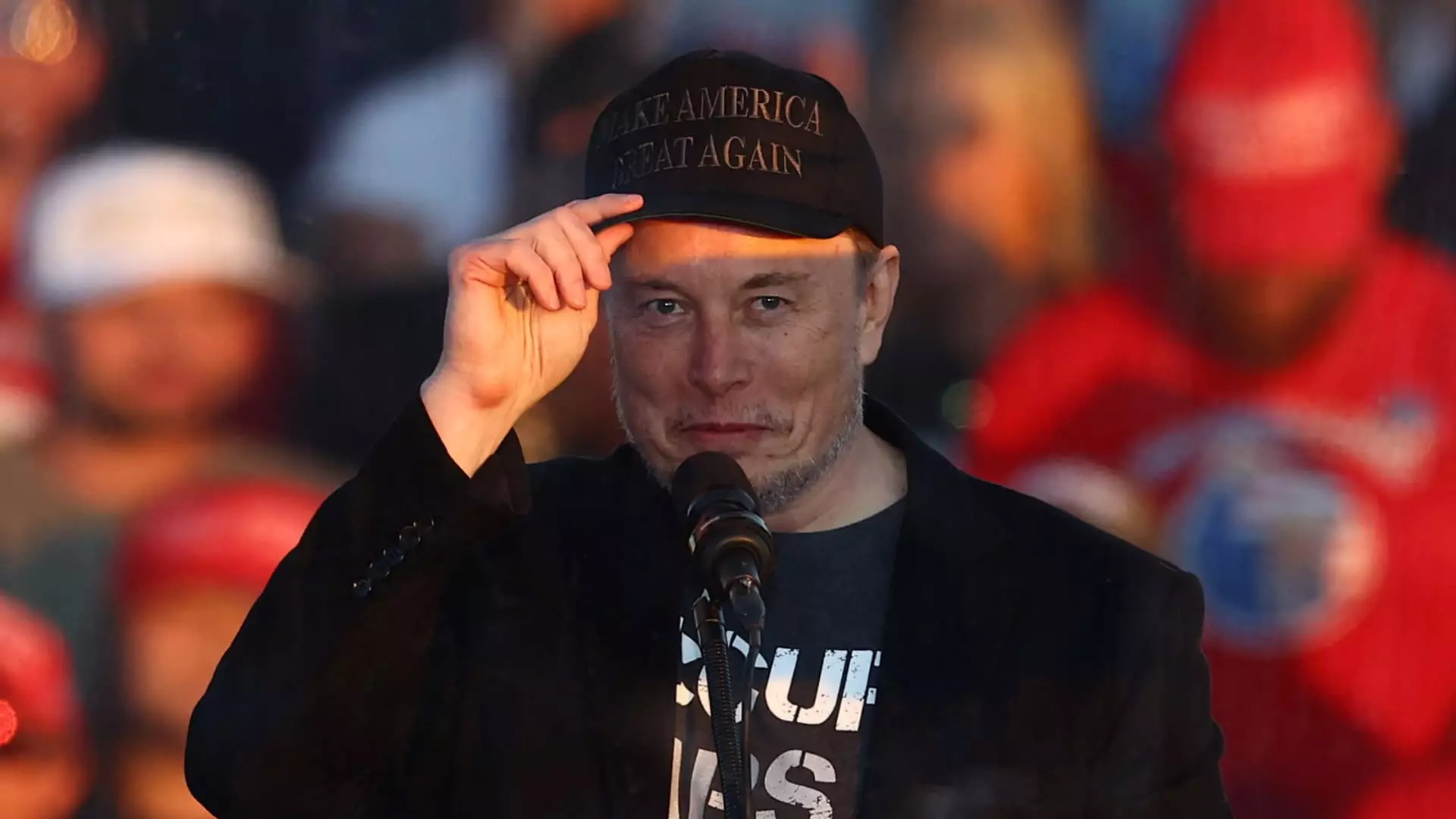In recent developments, Tesla CEO Elon Musk has once again thrust himself into the political spotlight, this time regarding the German elections. By endorsing the far-right Alternative for Germany (AfD) party in a post on social media platform X, Musk has sparked outrage and concern over the intersection of billionaire influence and politics. His remarks, declaring, “Only the AfD can save Germany,” combined with the context of local and international politics, merit a deeper analysis of the ramifications of such endorsements.
The AfD has garnered significant traction in Germany over recent years, notably achieving second place in polling ahead of the upcoming elections. This party, with roots in nationalist and anti-immigration sentiment, reflects a broader trend of right-wing populism gaining ground globally. Musk’s affiliation with a party that is often described as rehabilitating far-right ideologies raises ethical concerns not only about his power as a public figure but also about the potential normalization of extremist political movements.
Critics like Senator Chris Murphy have accused Musk of being “out of touch,” and termed his support for the AfD as enthusiastic backing for a party often linked to neo-Nazi ideologies. Such endorsements can have a chilling effect on democratic discourse, where fringe beliefs begin to infiltrate mainstream politics. It is imperative to recognize the serious implications of legitimizing such parties through high-profile endorsements, especially from influential personalities like Musk.
Musk’s social media presence undeniably comes with substantial influence, boasting over 200 million followers on X. When a figure of his stature endorses a political organization, the potential for shaping public opinion is immense. This influence extends beyond individual votes; it can alter party politics, sway undecided voters, and even impact international relations.
This endorsement comes at a time when the AfD has been criticized for its stances on various issues, including its opposition to military support for Ukraine and calls to lift sanctions on Russia. Musk himself has previously exhibited skepticism towards the Ukraine support narrative, indicating a strategic alignment of beliefs that could amplify the AfD’s messaging. Those of us invested in independent and fact-based politics must scrutinize the motivations behind such endorsements and the potential alignment of business interests with political goals.
In response to Musk’s comments, German Chancellor Olaf Scholz rejected the notion that the AfD could “save Germany,” emphasizing the necessity of maintaining democratic values against such extreme ideologies. Scholz’s stance reflects a broader electoral sentiment among established political entities in Germany, which have largely shunned coalition-building with the AfD. The rejection is not just a political maneuver; it is a vital defense of democratic principles and an assertion against the rise of divisive politics fueled by populism and extremism.
The AfD’s track record, including its controversial rhetoric and failure to provide viable solutions to pressing social issues, has positioned it as a party that thrives on division rather than unity. Hence, the German political landscape must rally to counteract this influence, reinforcing the necessity of a collective societal response to extremist ideologies.
Musk’s endorsement of the AfD is part of a larger pattern where he has voiced support for various right-wing figures globally, such as Italy’s Giorgia Meloni and Argentina’s Javier Milei. This trend indicates a possible strategy where Musk seeks to ally with populist leaders who echo his business philosophies. Particularly in Europe, where he faces challenges in the automotive market, these political endorsements may reflect a tacit desire to curry favor with anti-regulatory factions and bolster his interests.
While it remains to be seen how Musk’s political affiliations will affect Tesla’s operations or public perception in the long run, they undeniably raise questions about the intertwining of corporate interests, public influence, and political beliefs.
As we analyze Musk’s recent forays into volatile political terrains, it is critical to address the ethical concerns surrounding corporate involvement in political discourse. Musk’s endorsements raise alarm bells about the power dynamics between wealth, influence, and democracy. In an age where social media serves as a battleground for public opinion, those of us with a vested interest in democratic processes must advocate for transparency and ethical considerations in political engagement by corporate leaders. To preserve healthy democratic engagement, it is essential to challenge endorsements that have the potential to destabilize societal cohesion and uphold extremist rhetoric.

